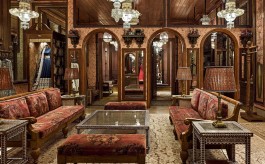The gender ratio in sportswear has been skewed: Somdeb Basu
April 22, 2014
Interview with Brand Director, Reebok
 After the fiasco with the senior management at Reebok, parent Adidas chose a Reebok veteran, Somdeb Basu, as its brand
director. Reebok's new positioning of fitness seems to be reviving the company
as it has claimed double digit profitable growth. Basu, who has spent a decade
with the company, tells Sayantani Kar
how he is syncing the year-old positioning with Reebok's various business
moves. Edited excerpts:
After the fiasco with the senior management at Reebok, parent Adidas chose a Reebok veteran, Somdeb Basu, as its brand
director. Reebok's new positioning of fitness seems to be reviving the company
as it has claimed double digit profitable growth. Basu, who has spent a decade
with the company, tells Sayantani Kar
how he is syncing the year-old positioning with Reebok's various business
moves. Edited excerpts:
Reebok on being a fitness brand,
differentiated from Adidas, the sports brand. How will your positioning dictate
your plans?
Consistency is not the enemy of newness. So, one major aspect is to layer on
more products. In 2013, we introduced shoes and sportswear for running, dancing, yoga,
aerobics and cross-fit, this year we have added products for cycling and even
mixed martial arts. We would have 100 FitHub stores by this month, out of a total
350 stores.
Reebok earlier straddled sportswear.
Apart from trigger of the management debacle, was the change based on Indian
research?
Reebok shifted to a fitness platform in early-2012. When we were rebooting in
India , the global management commissioned a research here. What they found
fell in with their plans - there was a growing consciousness of personal
fitness.
Reebok has also said it would target
women but volumes lie in men's sportswear...
The gender ratio in sportswear had been skewed; most brands would have only
15-17 per cent of merchandise for women. We realised it had no grounds in
consumer research. We now dedicate 50 per cent of our wall space for women, as
opposed to the norm of 10-30 per cent, displaying our range of dance and yoga
products among others. Women fitness wear now has a revenue share of 45-46 per
cent of the store.
Have accessories sale increased?
Accessories have traditionally accounted for 8-10 per cent of revenue. The
scope for accessories, mostly imported, has increased. Not only have we added
more products such as ankle-weights for running practice, we are making them
snazzier such as pink and yellow dumbbells.
How costly are FitHub stores compared to
a regular Reebok store?
They are approximately costlier by 25 per cent to set up, but our franchisees
have seen growth in sales and this has been higher for FitHub stores than
regular stores.
When would you be launching your portal
for e-commerce?
In the next few months. We are selective about multi-brand portals and supply
Myntra, Jabong and Flipkart, as others tend discount in ways that reflects
poorly on the brand. For the same reason, we have stopped selling in factory
outlets and institutional sales channels.
Fashion e-commerce has traction in
smaller towns. But, your positioning gears you for urban areas with specialised
fitness needs. Will e-commerce work?
Even within metros, consumers can access our products even if the nearest store
might be a few kilometres away. In Mumbai, for example, beating traffic would
be a welcome change.
Being a personal fitness brand also cuts
you off from associating with regular sporting events the way Adidas would. Are
you creating your own ground events?
We have Reebok Running Squads to train people
across eight cities to run long distance. Anyone can join and we get the city's
best trainers. The FitHubs would have classes too. We have 1,200-1,500 joining
us for classes on the Raahgiri Days in Gurgaon on car-free Sundays.









Comments